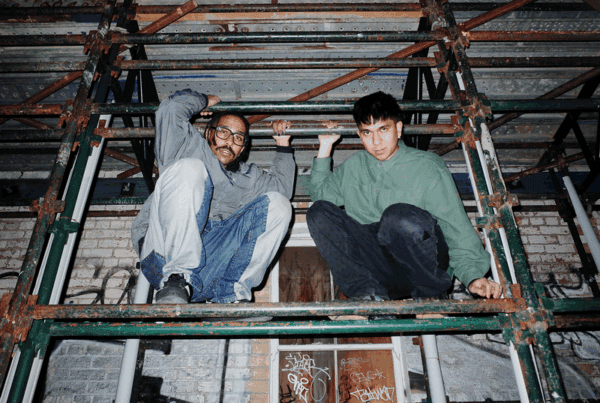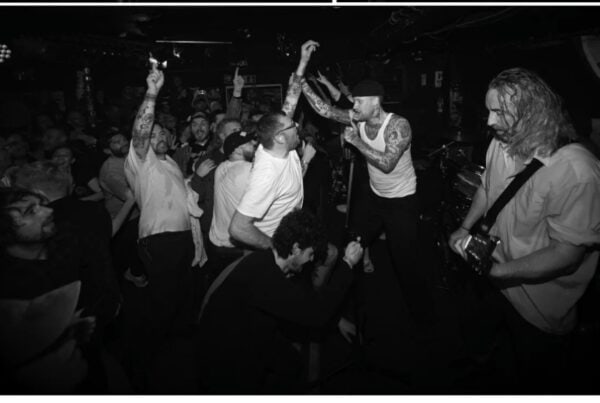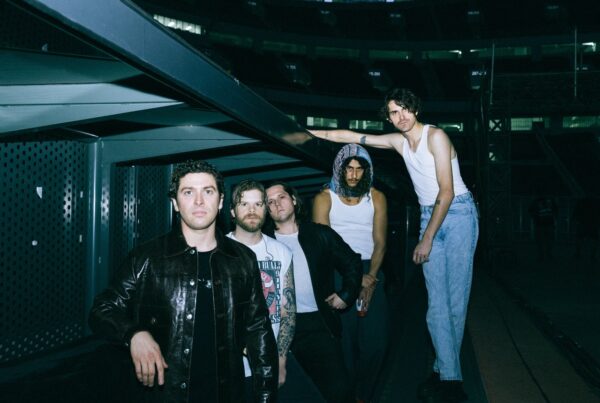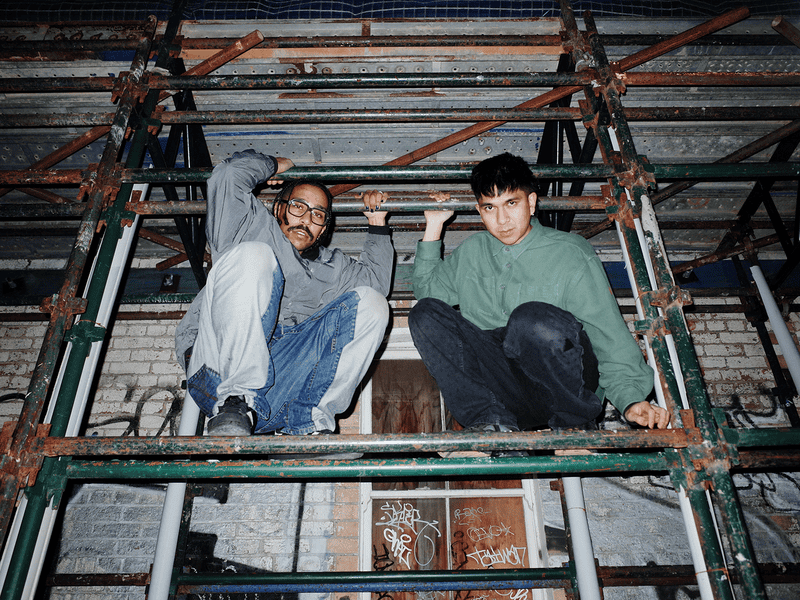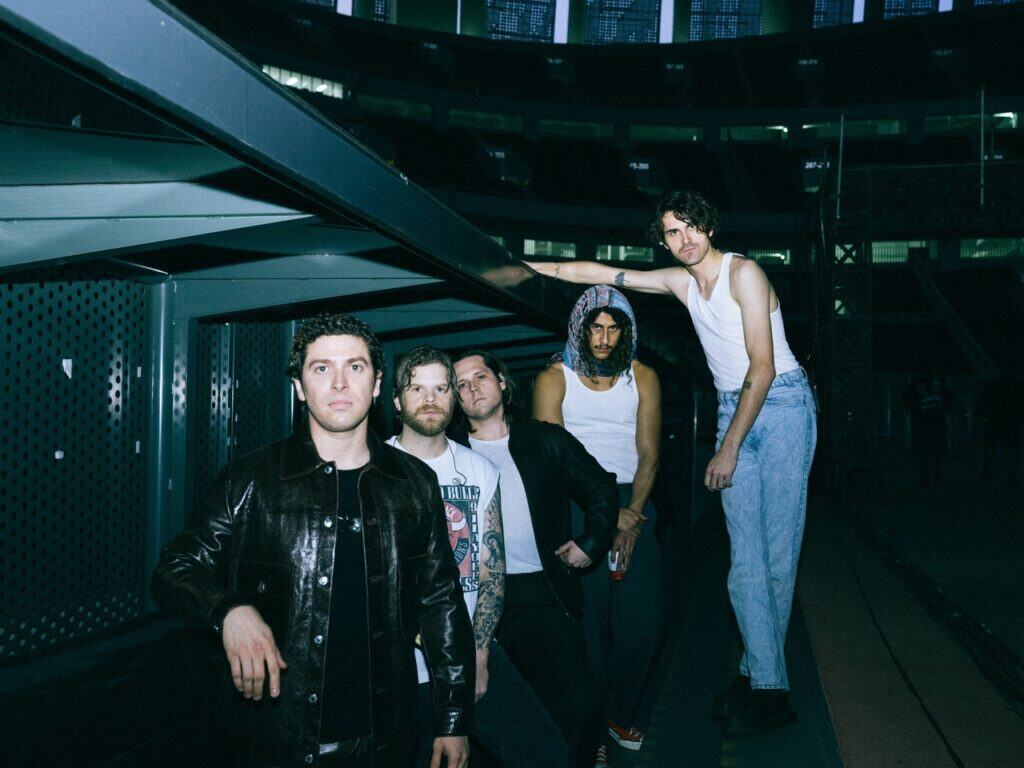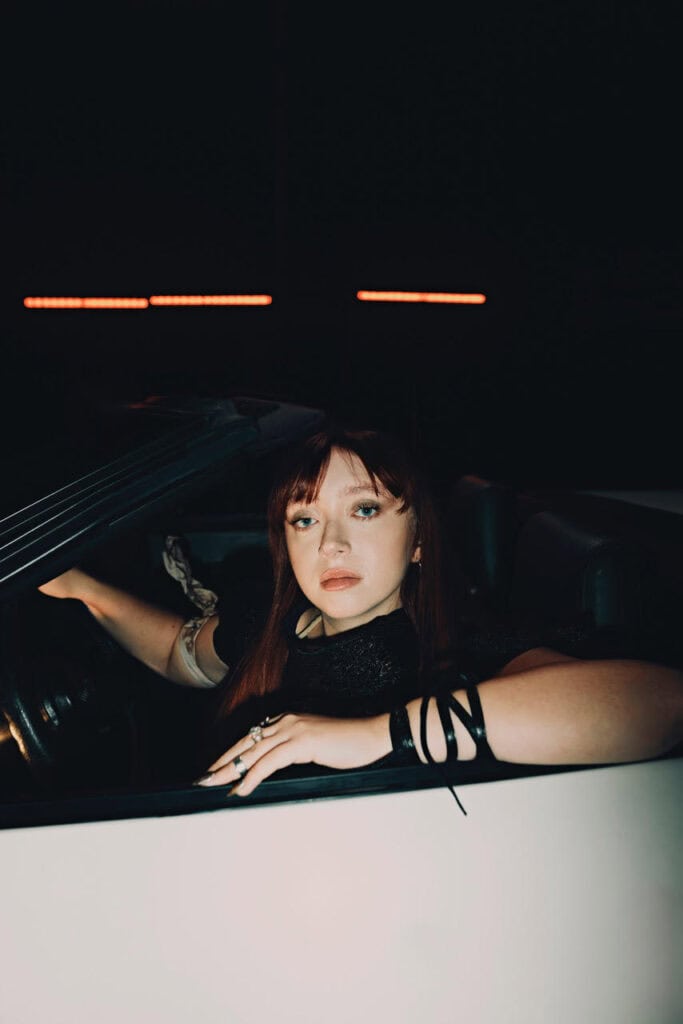2023 was a seminal year for Damon Albarn, Graham Coxon, Alex James and Dave Rowntree, reunited after nearly a decade to release their ninth studio album, The Ballad of Darren.
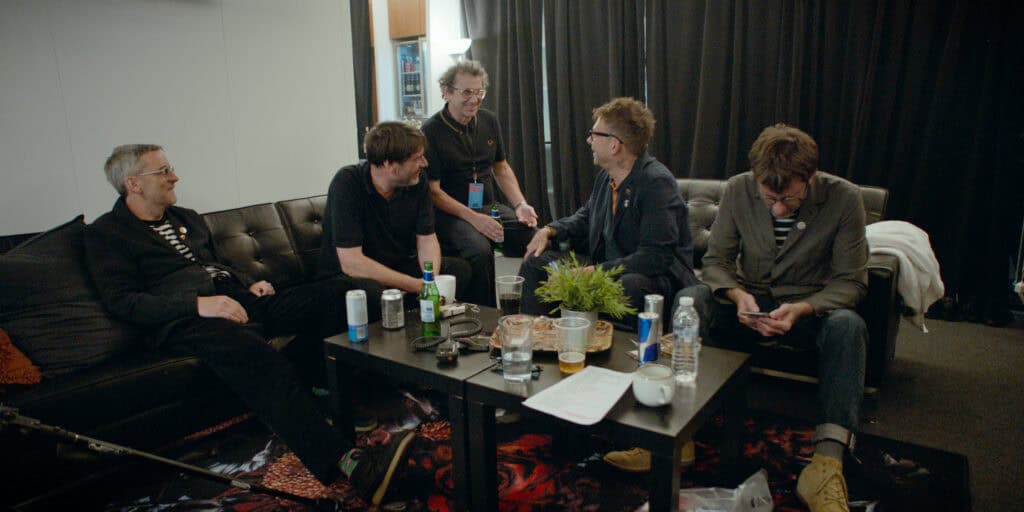
Their latest documentary, blur: To The End, follows the album’s recording process, as well as rehearsals and life on the road, over six months as the band prepares for two headline shows at Wembley Stadium in July 2023 – a career high they’ve coveted for three decades.
Director Toby L’s film is an honest, sensitive and subtly comedic look at the band’s comeback through a four-way lens on a 30-year friendship.
Soundsphere caught up with him following the world premiere, which took place at international documentary festival, Sheffield DocFest, in June.
Mindful that, as one of Britain’s best-loved bands, Blur’s journey was well-trodden ground, we were curious what story he felt hadn’t yet been fully told.
“I loved the previous docs [which range from 1993’s Starshaped to New World Towers, released in 2015], so I wouldn’t say anything was lacking in those films. However, I just wanted to do something else – ideally To The End is a complement to those stories, but ultimately its own thing.
“I wanted this film to be raw, funny, sad, insightful, ponderous and hopefully inspirational, a story of maturity and considering mortality. And in terms of delivering the goods – I couldn’t have asked for more from each of the band. They were generous with their time and in sharing their experiences, allowing me to do everything I set out to do.
“When considering the original intentions for the film, and how I wanted it to be a more emotional exploration of the band, I feel fulfilled with how the final film turned out. I hope it moves people in the same way I felt moved making it.”
The film progresses Blur’s narrative, delving deeper into their social commentary; considering the mood of that era and how to relates to today.
“We also explored more specifically the group’s dynamics, and what commitment it takes to keep a band together after such a long time.”
Resisting the recent trend for orchestrated and potentially inauthentic footage, the film stuck to strict shooting rules in the hope of a more ‘honest’ outcome:
- “everything filmed with the band would be handheld and on location
- no glossy ‘talking head’ interviews in studios or additional lighting, etc
- entirely natural capture throughout – all we had was the band’s schedule,and we would turn up and see what unfurled.”
Hearing that aspects of the director’s vision were inspired by Michael Winterbottom’s The Trip and seeing the nuances of the relationships between the four men and the journeys they’ve been on – as individuals and together, it begs the question if such sensitivity is a common trait across Toby’s projects.
He describes this film as “a culmination of a lot of things that our company has been able to produce” including a run of great documentaries and projects with artists such as Olivia Rodrigo [Sour Prom], Foals [Rip Up The Road] and Liam Gallagher [Toby L was also behind the previous year’s Knebworth ’22, which he laughed was “quite a different” experience].
And now it’s time for a natural pause.
“All of those projects were utterly different, in a wonderful way. Every time I work with an artist, even if I have a slightly consistent approach in terms of direction, I still endeavour to tune into the artist’s world or psyche, which requires a bespoke treatment and plan for the story.”
“With Liam, I wanted to tell a people’s story, a snapshot of that moment in time post-Covid when we could all be together again; Foals was about life spent being in a band and the trials and tribulations of life on the road; and Olivia was a hyper-real, more surreal conceptual performance project.”
He says each brought their unique energies and thought processes.
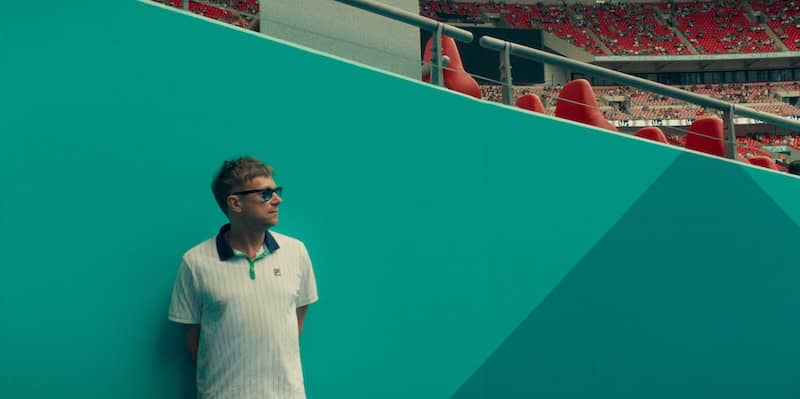
“Although I’d hope that if anyone saw all of the projects back-to-back, perhaps a through-line might present itself – ultimately one of trying to create connection and to convey a sense of empathy, honesty and truth.”
A fellow lifelong fan, I was curious what it was about Blur that first captured Toby’s imagination in the first place.
“They were immediately charismatic, melodic, and a bit wonky. Every other act I had heard up until that point in the pop mainstream followed a certain kind of format. Blur eschewed the cliches, or manipulated them at least, and did something distinctive and original-sounding to me.”
He said he discovered them in 1994 during the ‘Parklife’ era, aged nine, after which followed a pretty boast-worthy first gig on The Great Escape tour aged 10 – a gig that sparked an obsession with music he’s carried ever since. Blur changed his world view on art, music and politics.
I’m always curious with documentary makers how they manage the distinction between fan and filmmaker.
“Oh, the fandom remains intensely real, although I have always been able to compartmentalise my adoration and respect for artists and musicians with a recognition that those people are the same fallible human beings as the rest of us.”
Full of self-awareness, he recognises that putting his subjects on any pedestal could be hazardous – especially working with artists.
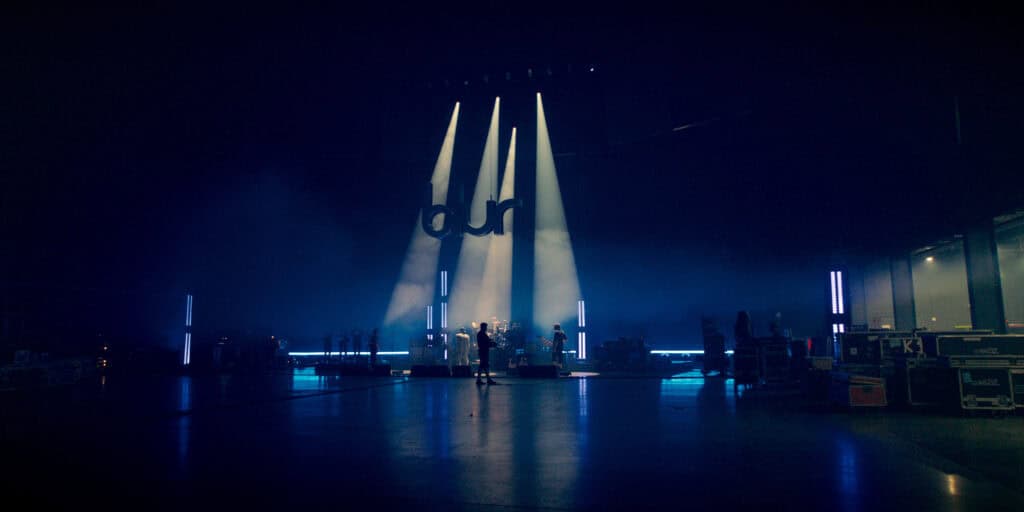
“As much as you can love the work, it’s important to draw a distinction between the work and the person in order to retain objectivity and be the best support to them possible. Otherwise, you could be a fawning loon; no one wants that.”
On one hand, following a band you’ve loved since childhood for six months, leading up to one of the biggest moments of their career is a big deal. You might wonder if the ‘never meet your heroes’ concept would apply.
Admittedly they had worked together before (Toby’s label looks after Rose Elinor Dougall and Graham Coxon’s The Waeve, and he has worked with Albarn on other projects), so there was a foundation in place, but he said working on this film merely heightened his respect for Albarn’s honesty and work ethic.
“He’s a truly inspiring and insightful person. I connect to his willingness to philosophise and consider the ether in an unpretentious and enquiring, reverential way.”
Similarly, he said Graham, Alex and Dave are all “ludicrously intelligent, talented and sensitive”.
“They’re also all hilarious. Having an appreciation for the characters you follow I think creates an immediate point of connection, because there’s a fundamental understanding of who they are, what they’re doing, and having knowledge of their work also acts as a colossal shorthand as well.”
To The End isn’t just a celebration of what they’ve done to date but is a hopeful reminder that age and experience don’t always go hand in hand. Here is Blur – 30 years on – the oldest they’ve been and, as Toby says: “They are still having the biggest, most naive experience of their lives, and I think that’s hopeful for everyone, that you can achieve your greatest and best things in life at any point. It may still be down the track.”
Not even Blur can afford to be complacent. As Albarn points out, if the collective comeback is no good, then they’re “just a bunch of old cunts trying to relive the past.”
Doubtful. This particular ‘whole’ appears to consistently deliver more than the sum of its parts.
Toby said you only have to listen to Blur’s music or see other interviews to realise all four are highly intelligent, complex, distinctive characters, so if there was any real surprise during the filmmaking process, it was how real that was.
“Seeing them in a room together, it felt like I was watching the film whilst making the film. It’s so rare that you get such animated, distinctive characters that are so autonomous and individual yet come together and coalesce to create something fucking unique.”
Echoing Albarn’s comment of appreciation for the magnitude of them finally playing Wembley, acknowledging the meaning such a gig carries, I’d say for a band, that’s “about as good as it gets.”
blur: To The End is in UK and Irish cinemas from July 19

